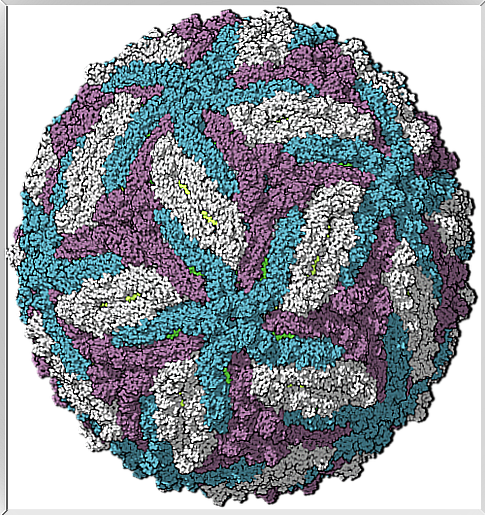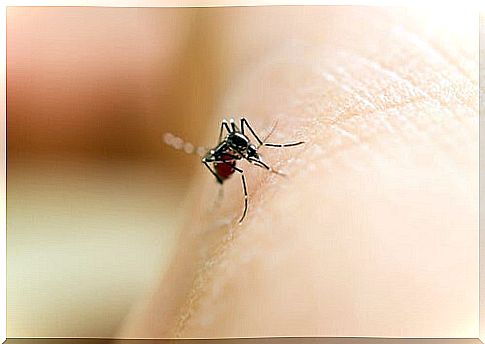Zika Virus In Dogs – Care And Management

Recent studies have confirmed that the Zika virus can transmit infection between people and their pets. Prophylaxis is based on the use of repellants and aromatic substances. It is of fundamental importance. Can the Zika virus infect our pet? Let’s find out together.
It would be best, of course, not to visit tropical areas where mosquitoes carry the Zika virus with high intensity. However, if there is such a risk, because we are in areas contaminated with this virus – it is worth getting acquainted with its operation. In this article, you will also learn what to do and how to care for an animal that has unfortunately been infected with the virus.
Therefore, prevention is necessary if we travel to endangered places. Today, however, we will focus on the question of what about our animals? How do I care for a dog that has been infected? Let’s find out together. This virus has the ability to cross the superspecific barrier.
Zika virus – the most important information
The first step is to have basic information about the Zika virus. It can affect any of us if we find ourselves in a place where it reigns. According to recent data, it is also spreading to animals.

Although information about the virus has only recently appeared in the popular media, its origins date back to the 1940s, in Uganda. Most people, however, showed no symptoms at the time, so the problem was ignored for years.
Symptoms after infection
After a long time, studies were carried out on the incidence of the virus in humans after mosquito bites. Symptoms of infection were, among others, high temperature, conjunctivitis, severe migraines, pain in muscles and joints.
As you can see, these symptoms are quite similar to those of a cold. In the case of specific medical care, in the vast majority of cases, recovery was and is possible.
The bigger problem arose when the number of people infected increased. At the time, science reported that the Zika virus could lead to birth defects such as microcephaly. Therefore, this disease has become a huge threat to pregnant women.
Nevertheless, it is recommended that pregnant women do not travel to areas where they are infected with this virus. A woman, after returning from such a place, if she plans to become pregnant, should wait until the period of more than 8 weeks has elapsed .
Zika virus – does it affect dogs?
At present, little is known about the virus. We still don’t know why it is spreading so fast. Since the mosquito bites indiscriminately between the human and the primate, it is hypothesized that the virus also spreads to the pet. In turn, what you guess increases the risk of infecting the dog’s owners – us.
However, there are no studies that indicate the transmission of the Zika virus among mammals. Even in the case of chimpanzees, baboons and whitebeard whitebeard inhabitants of the Ugandan forest, there is no evidence that it will transmit the disease to other animals after acquiring the virus.

That is why it is so important not to panic at the mere bite of our dog. Let it not even cross our heads to throw the animal out of the house for fear that it may infect us.
The most important thing is to prevent the spread of mosquitoes in your home and avoid being bitten by them in your pets. Remember that they “work” during the day, so be especially vigilant when your pet is outside. We have prepared some important tips:
1. Use insecticides
They sell a variety of dog and cat products in pet stores that are easily applied with a spray. Be careful not to get it in your eyes or mouth, and don’t apply too much.
Human repellants are not recommended as they may contain ingredients that are toxic to the animal’s skin. Especially when it tends to lick itself.
- You can even prepare your own insect repellent. Use two drops of lemon essential oil, two drops of lavender and a glass of water for this. Put everything in a spray bottle.
- Then just spray the agent on the animal, as well as on its bedding and the environment where your pet is most often. Of course, due to such natural ingredients – you can also use it on your skin!
2. Zika virus and aromatic plants at home
If you have a garden or patio, try to plant those that keep mosquitoes and other insects away. We refer not only to citronella and lavender, but also to mint, oregano, basil and rosemary. In addition, they can be used for cooking and, as you know, guarantee a wonderful smell of a homely atmosphere.
3. Don’t leave water around
The Aedes mosquito – like other species – uses water to lay eggs. Larvae develop in these humid and wet spaces, so we should avoid creating them in our surroundings.
Finally, we recommend that you do not travel to places where there are many Zika cases, especially in tropical and jungle areas. Pets with the virus have not been detected yet, but it is better to prevent it and not take our pets to certain areas.
Summary
The Zika virus is transmitted to humans by mosquitoes while sucking blood, most often tiger mosquitoes. These also represent a vector of the dengue virus and chikungunya virus and Aegypti virus.
About 20% of people infected with the Zika virus have no symptoms, and the rest of the disease is fairly mild, usually lasting 2–7 days. The presence of Zika virus nucleic acid can be found in the patient’s blood from several days to several weeks. The mosquito becomes infected in the first week of viremia.
The diagnosis of the disease is determined by the result of RT-PCR tests with urine, RT-PCR with blood plasma and serological examination of serum pairs for the presence of antibodies.









